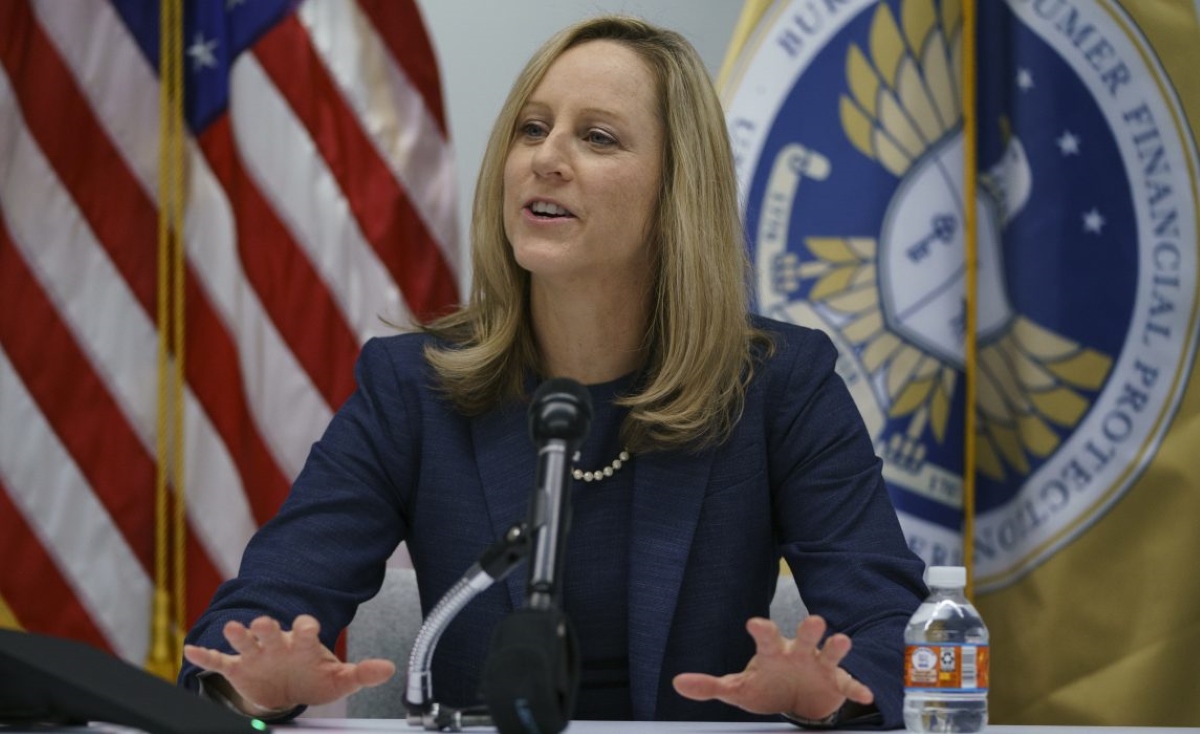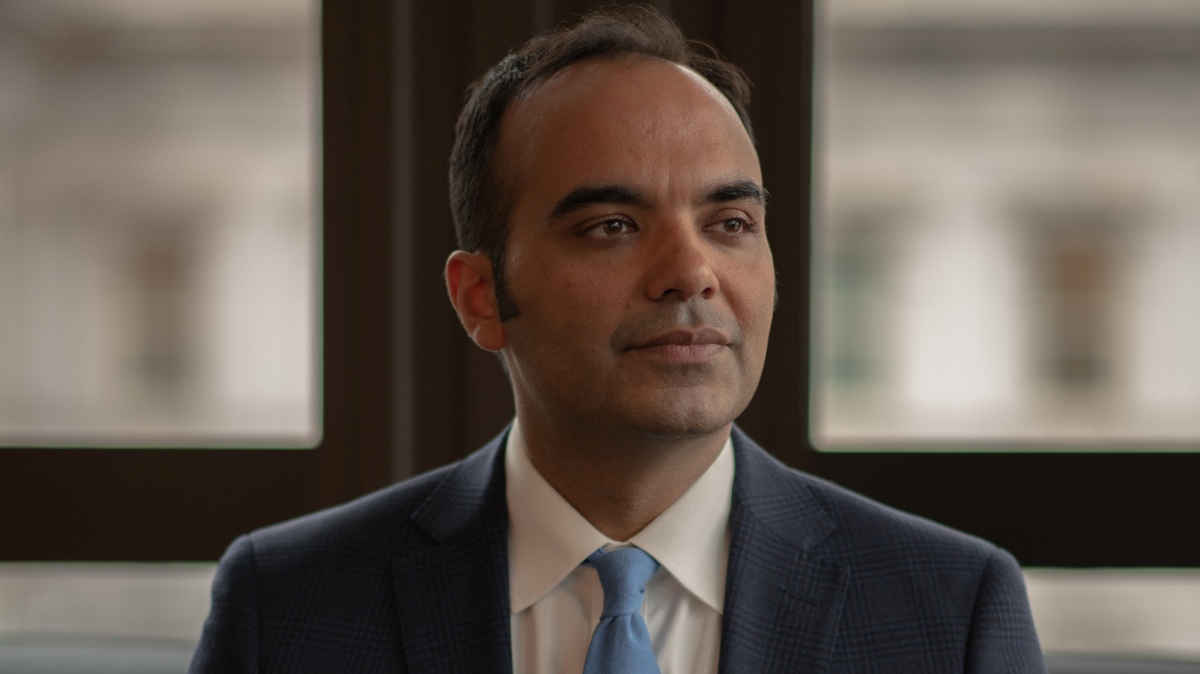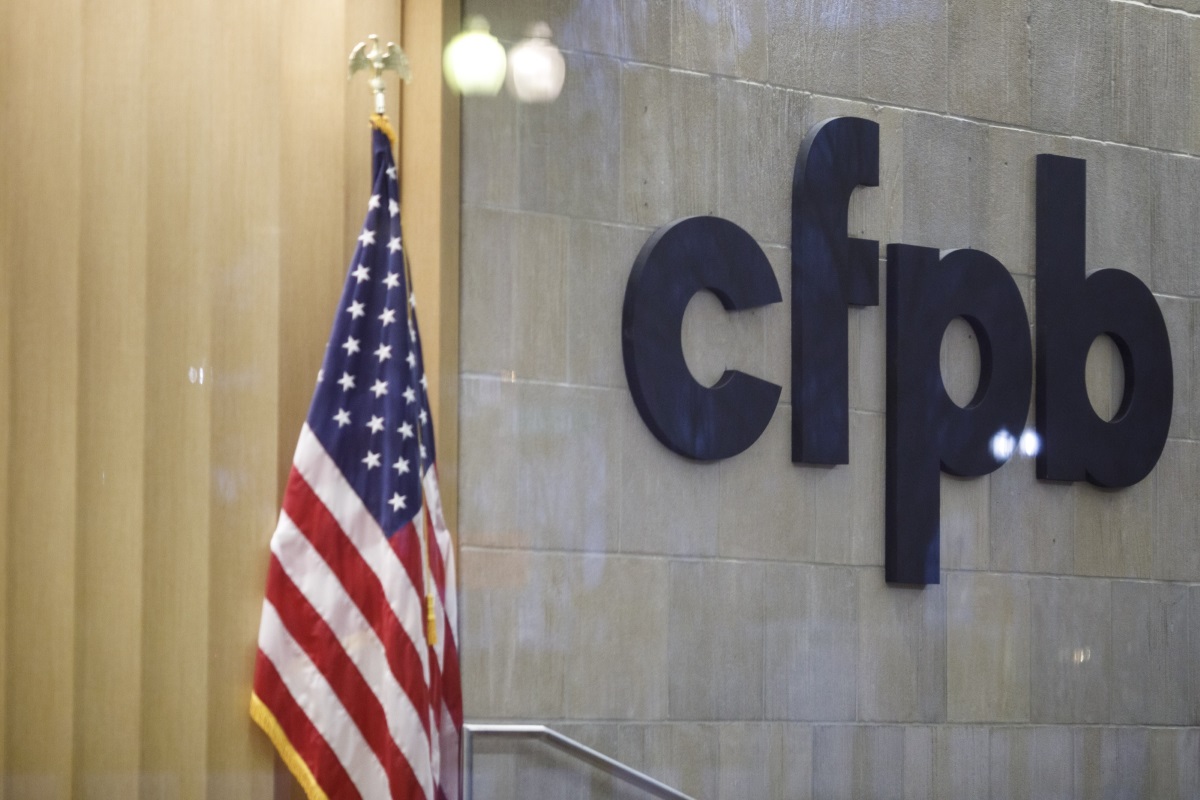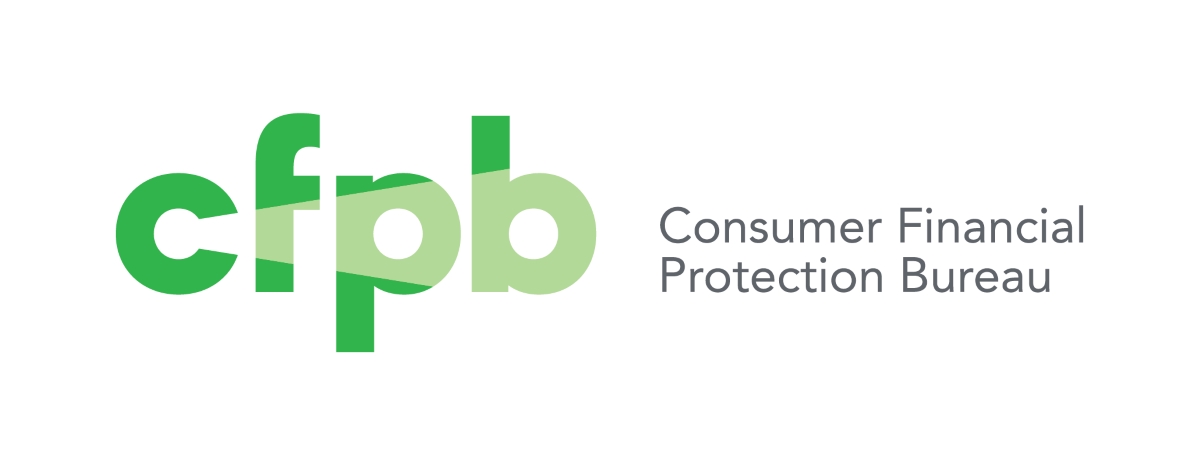Home>Finance>What Does The Consumer Financial Protection Bureau Regulate


Finance
What Does The Consumer Financial Protection Bureau Regulate
Modified: March 1, 2024
Find out what the Consumer Financial Protection Bureau regulates in the world of finance. Stay informed to protect your financial interests.
(Many of the links in this article redirect to a specific reviewed product. Your purchase of these products through affiliate links helps to generate commission for LiveWell, at no extra cost. Learn more)
Table of Contents
- Introduction
- Purpose of the Consumer Financial Protection Bureau (CFPB)
- Regulatory Authority of the Consumer Financial Protection Bureau (CFPB)
- Consumer Financial Products and Services
- Mortgage Lending Regulations
- Credit Card Regulations
- Payday Lending Regulations
- Debt Collection Regulations
- Student Loan Regulations
- Auto Loan and Leasing Regulations
- Conclusion
Introduction
The Consumer Financial Protection Bureau (CFPB) is an independent federal agency in the United States that was established under the Dodd-Frank Wall Street Reform and Consumer Protection Act in 2010. The primary objective of the CFPB is to protect consumers in the financial marketplace by promoting transparency, fairness, and accountability.
The CFPB serves as a regulatory body that oversees a wide range of financial products and services, including mortgages, credit cards, payday loans, debt collection, student loans, and auto loans, among others. It works to prevent unfair, deceptive, or abusive practices by financial institutions, and provides consumers with the necessary information and tools to make informed decisions about their financial well-being.
With a focus on consumer protection, the CFPB plays a vital role in ensuring that financial institutions operate in a manner that is consistent with the interests of the consumer. By establishing regulations and enforcing compliance, the CFPB aims to foster a more transparent and accountable financial industry.
It is important to note that while the CFPB is responsible for enforcing regulations, it does not have jurisdiction over all financial institutions. Banks and credit unions with assets less than $10 billion are regulated by the CFPB, while larger institutions are overseen by other federal regulatory agencies such as the Office of the Comptroller of the Currency, the Federal Reserve, and the Federal Deposit Insurance Corporation.
In this article, we will explore the regulatory authority of the CFPB and delve into the specific financial products and services it oversees. Understanding the role of the CFPB and its impact on the financial landscape is crucial for consumers to make informed decisions and protect their rights in the marketplace.
Purpose of the Consumer Financial Protection Bureau (CFPB)
The Consumer Financial Protection Bureau (CFPB) was created with a clear mission: to protect consumers in the financial marketplace. Its primary purpose is to ensure that consumers are treated fairly and have access to transparent and competitive financial products and services.
Prior to the establishment of the CFPB in 2010, the regulations and oversight of consumer financial products and services were fragmented across various agencies, which often led to gaps in protection and enforcement. The CFPB was designed to consolidate these responsibilities into one agency, with a focus on promoting consumer financial education, safeguarding consumer interests, and holding financial institutions accountable for any unfair or deceptive practices.
One of the key objectives of the CFPB is to promote transparency in the financial marketplace. Many consumers find it challenging to understand the terms and conditions of financial products and services, such as mortgages, credit cards, and loans. The CFPB works to ensure that financial institutions provide clear and easy-to-understand disclosures, enabling consumers to make informed decisions about their finances.
In addition to promoting transparency, the CFPB is responsible for enforcing federal consumer financial laws. This includes taking action against financial institutions that engage in unfair, deceptive, or abusive practices. By holding these institutions accountable, the CFPB aims to create a fair and level playing field for consumers.
Furthermore, the CFPB actively encourages financial education and empowerment. The Bureau provides consumers with the necessary tools, resources, and information to make informed financial decisions. This includes educational materials, online resources, and interactive tools that can help consumers understand their rights and navigate the complexities of the financial marketplace.
Overall, the purpose of the CFPB is to protect consumers from unscrupulous financial practices, promote transparency, and empower individuals to make sound financial choices. By doing so, the CFPB plays a vital role in ensuring a fair and inclusive financial system that works for all consumers.
Regulatory Authority of the Consumer Financial Protection Bureau (CFPB)
The Consumer Financial Protection Bureau (CFPB) holds significant regulatory authority over a wide range of consumer financial products and services. Its powers are derived from various federal statutes, including the Dodd-Frank Wall Street Reform and Consumer Protection Act.
The CFPB has the authority to write rules and regulations that govern the practices of financial institutions and protect consumers from unfair or deceptive practices. These rules cover a range of areas, including mortgage lending, credit cards, payday loans, debt collection, student loans, auto loans, and more.
One of the key features of the CFPB’s regulatory authority is its ability to enforce compliance with these rules. It carries out investigations, conducts examinations, and takes enforcement actions against financial institutions that violate consumer financial laws. This enforcement authority gives the CFPB the power to impose penalties, restitution, and other remedies to address harm caused to consumers.
Additionally, the CFPB has the authority to engage in rulemaking, which involves the process of developing and implementing regulations. Before issuing a new rule, the CFPB typically goes through a notice and comment period, during which stakeholders have the opportunity to provide feedback and input on the proposed rule. This ensures that the CFPB considers diverse perspectives and takes into account the potential impact of its regulations.
Furthermore, the CFPB has supervisory authority over certain financial institutions. This means that it has the power to conduct routine examinations of these institutions to assess their compliance with consumer financial laws. The CFPB can also issue supervisory guidance and recommendations to promote industry best practices and prevent consumer harm.
It’s important to note that the regulatory authority of the CFPB extends to both large and small financial institutions. While larger institutions may have their own internal compliance departments, the CFPB plays a crucial role in ensuring consistency and fairness in the marketplace by setting standards that apply to all financial institutions.
Overall, the regulatory authority of the CFPB is aimed at promoting transparency, fairness, and accountability in the financial industry. By establishing rules, enforcing compliance, and conducting examinations, the CFPB seeks to protect consumers and ensure that their rights are safeguarded in the financial marketplace.
Consumer Financial Products and Services
The Consumer Financial Protection Bureau (CFPB) is responsible for overseeing a wide range of consumer financial products and services. Its regulatory authority extends to various sectors of the financial industry, ensuring that consumers have access to fair and transparent offerings. Let’s explore some of the key areas that fall under the CFPB’s purview.
Mortgage Lending: The CFPB has implemented regulations to protect consumers in the mortgage market. These regulations include requirements for clear and accurate disclosures, prohibitions on unfair lending practices, and standards for mortgage servicers to ensure fair treatment of borrowers.
Credit Cards: The CFPB works to ensure that credit card issuers provide clear and transparent information to consumers. This includes rules governing credit card disclosures, interest rates, and fees. The CFPB also monitors and enforces compliance with the Credit CARD Act, which provides additional protections for credit card users.
Payday Loans: The CFPB has taken measures to address the risks associated with payday loans, which can often trap consumers in a cycle of debt. Through regulations, the CFPB aims to promote responsible lending practices and increase transparency in the payday loan industry.
Debt Collection: The CFPB regulates debt collection practices to protect consumers from harassment and abuse. It sets guidelines for debt collectors, including rules regarding communication with consumers, validation of debts, and prohibitions on unfair collection practices.
Student Loans: With the rising cost of education, the CFPB plays a crucial role in overseeing student loan servicing and addressing issues related to student loan debt. It works to ensure that borrowers have access to accurate information, affordable repayment options, and adequate protections against predatory practices in the student loan industry.
Auto Loans and Leasing: The CFPB has authority over auto loans and leases, aiming to prevent discriminatory practices and promote transparency. It focuses on ensuring that consumers are not subject to unfair interest rates, discriminatory lending practices, or deceptive advertising in the auto finance market.
Other Consumer Financial Products and Services: In addition to the areas mentioned above, the CFPB also oversees other financial products and services such as prepaid cards, bank accounts, debt relief services, and more. Its goal is to ensure that consumers are treated fairly and have access to reliable and transparent options in the financial marketplace.
By regulating and overseeing these consumer financial products and services, the CFPB aims to protect consumers from unfair practices, provide them with necessary information, and promote a more inclusive and transparent financial marketplace.
Mortgage Lending Regulations
The Consumer Financial Protection Bureau (CFPB) plays a vital role in regulating and overseeing the mortgage lending industry to protect consumers and ensure fair and transparent practices. The CFPB has implemented a range of regulations aimed at promoting responsible lending and preventing harmful practices. Let’s explore some key mortgage lending regulations enforced by the CFPB.
Loan Disclosures: The CFPB has established rules under the Truth in Lending Act (TILA) and the Real Estate Settlement Procedures Act (RESPA) to ensure that borrowers receive clear and accurate information about their mortgage loans. These regulations require lenders to provide borrowers with detailed disclosures, including information about interest rates, loan terms, closing costs, and other charges. By providing transparent information, consumers can make informed decisions about their mortgage loans.
Ability-to-Repay Rule: The CFPB’s Ability-to-Repay Rule requires lenders to assess a borrower’s ability to repay a mortgage before extending credit. Under this rule, lenders must consider factors such as the borrower’s income, assets, debts, and employment history. The aim is to prevent borrowers from obtaining loans they cannot afford, reducing the risk of defaults and foreclosures.
Qualified Mortgage Standards: The CFPB has established guidelines for qualified mortgages, which provide legal protections for lenders who follow certain underwriting standards. Qualified mortgages must meet specific criteria, including limits on fees and points, restrictions on risky features (such as interest-only loans), and adherence to certain debt-to-income ratios. These standards help ensure that lenders offer safe and sustainable mortgage products to consumers.
Mortgage Servicing Rules: The CFPB has implemented rules to govern the practices of mortgage servicers, who are responsible for collecting payments, managing escrow accounts, and handling borrower inquiries. These rules establish requirements for clear and timely communication with borrowers, accurate recordkeeping, and fair treatment of borrowers facing delinquency or foreclosure. The aim is to protect borrowers from abusive or negligent practices by mortgage servicers.
Homeownership Counseling: The CFPB promotes homeownership counseling as a means to educate consumers about the homebuying process and help them make informed decisions. The Bureau requires certain mortgage lenders to provide a list of housing counselors to borrowers, ensuring they have access to guidance and support throughout the mortgage process.
Enforcement and Compliance: The CFPB actively enforces compliance with mortgage lending regulations through examinations, investigations, and enforcement actions. Lenders found to be in violation of these regulations may face penalties, fines, or other remedies to address consumer harm.
By implementing these mortgage lending regulations, the CFPB aims to create a more transparent, fair, and sustainable mortgage market. These regulations help protect consumers from predatory lending practices, ensure borrowers have access to clear and accurate information, and support responsible homeownership.
Credit Card Regulations
The Consumer Financial Protection Bureau (CFPB) places significant emphasis on credit card regulations to protect consumers from unfair practices in the credit card industry. By establishing and enforcing regulations, the CFPB aims to promote transparency, fairness, and responsible lending. Let’s explore some of the key credit card regulations enforced by the CFPB.
Clear and Transparent Disclosures: The CFPB requires credit card issuers to provide clear and easy-to-understand disclosures about fees, interest rates, and terms. These disclosures must be provided in a standardized format, allowing consumers to compare credit card offers and make informed decisions.
Restrictions on Interest Rate Increases: The CFPB’s regulations place limitations on credit card issuers’ ability to increase interest rates on existing balances. Prior to these regulations, credit card companies could raise interest rates on outstanding balances without notice. Now, issuers must provide 45-days’ advance notice for rate increases and offer consumers the opportunity to opt-out of the increase.
Limitations on Fees: The CFPB sets limits on various credit card fees to protect consumers from excessive charges. These regulations cover fees such as late payment fees, over-limit fees, and penalty fees. The CFPB also requires credit card issuers to clearly inform consumers about fee changes and prohibitions on certain types of fees.
Protections for Young Consumers: The CFPB has implemented regulations that protect young consumers from aggressive credit card marketing practices. Credit card issuers are restricted from offering credit cards to individuals under the age of 21 without their own income or a cosigner. These regulations aim to prevent young consumers from accumulating excessive debt at a young age.
Prohibition of Unfair Practices: The CFPB prohibits unfair and deceptive practices by credit card issuers. These regulations cover practices such as unfair billing and collection practices, deceptive advertising, and misleading terms and conditions. The CFPB actively enforces these regulations and takes action against issuers found to engage in such practices.
Additional Protections: The CFPB has implemented other regulations to enhance consumer protections in the credit card industry. These include restrictions on credit card marketing to certain vulnerable populations, requirements for timely posting of payments, and prohibitions on double-cycle billing.
By enforcing these credit card regulations, the CFPB aims to promote fair and transparent practices in the industry. These regulations empower consumers to make informed decisions, ensure that fees and interest rates are reasonable, and protect individuals from unfair and deceptive practices by credit card issuers.
Payday Lending Regulations
Payday lending is a type of short-term, high-cost lending that often targets financially vulnerable individuals who may need quick access to cash. Recognizing the potential risks associated with payday loans, the Consumer Financial Protection Bureau (CFPB) has implemented regulations to protect consumers and promote responsible lending practices. Let’s explore some of the key payday lending regulations enforced by the CFPB.
Ability-to-Repay Requirements: The CFPB’s ability-to-repay rule mandates that payday lenders must assess a borrower’s ability to repay the loan before extending credit. Under this regulation, lenders are required to verify a borrower’s income, expenses, and other financial obligations to ensure that they can comfortably afford to repay the loan.
Loan Limits: The CFPB has established loan limits to prevent borrowers from becoming trapped in a cycle of debt. Payday lenders are restricted from issuing loans to borrowers who have outstanding payday loans or who have reached the maximum number of loans allowed within a certain timeframe. These limits help protect consumers from excessive borrowing and prevent them from getting into situations of financial distress.
Enforcement of Interest Rate Limits: The CFPB enforces interest rate caps and restrictions on payday loans to mitigate the high cost of borrowing. Payday lenders must comply with state laws regarding interest rate limits, ensuring that they do not charge exorbitant fees that exploit desperate borrowers.
Restrictions on Loan Rollovers: The CFPB has implemented regulations to limit the number of times a borrower can roll over their payday loan. Loan rollovers often contribute to the cycle of debt, as borrowers extend their loans by paying additional fees. These regulations aim to prevent borrowers from repeatedly extending their loans, which can lead to a never-ending cycle of indebtedness.
Disclosure Requirements: Payday lenders are required to provide clear and transparent disclosures to borrowers regarding the terms and costs of the loan. This includes information about the annual percentage rate (APR), fees, repayment terms, and the total amount that the borrower will need to repay. By providing comprehensive and understandable disclosures, borrowers can make informed decisions about payday loans.
Prohibition of Deceptive Practices: The CFPB prohibits payday lenders from engaging in deceptive practices, such as misrepresenting the terms or costs of the loan, or using abusive collection tactics. These regulations aim to protect borrowers from predatory lending practices and unfair treatment.
The CFPB actively enforces these payday lending regulations by conducting examinations, investigations, and taking enforcement actions against lenders found to be in violation. Through these regulations and enforcement actions, the CFPB seeks to protect financially vulnerable consumers from being trapped in a cycle of debt and ensure that payday lenders adhere to responsible and fair lending practices.
Debt Collection Regulations
Debt collection is a necessary part of the financial industry, but it is crucial to ensure that it is conducted fairly and without harassment or abuse towards consumers. The Consumer Financial Protection Bureau (CFPB) has implemented regulations to protect consumers from unfair debt collection practices. These regulations aim to promote transparency, prevent abuse, and ensure that consumers are treated with dignity and respect. Let’s explore some of the key debt collection regulations enforced by the CFPB.
Fair Debt Collection Practices Act (FDCPA) Compliance: The CFPB enforces compliance with the Fair Debt Collection Practices Act, which sets strict guidelines for debt collectors. The FDCPA prohibits practices such as harassment, false or misleading information, and unfair practices in the collection of debts. Debt collectors must provide clear and accurate information to consumers, treat them fairly, and refrain from using deceptive tactics.
Validation of Debt: Debt collectors are required to provide consumers with a written validation notice within five days of their initial communication. This notice includes information about the debt, the amount owed, and the consumer’s rights to dispute the debt or request verification. This regulation ensures that consumers have the opportunity to verify the legitimacy and accuracy of the debt being collected.
Prohibition of Harassment and Abuse: The CFPB prohibits debt collectors from engaging in any form of harassment or abuse towards consumers. This includes threats of violence, using obscene or profane language, or repeatedly contacting consumers at inconvenient times or after being requested to stop. The regulations aim to protect consumers’ privacy and well-being during the debt collection process.
Limits on Communication: Debt collectors must follow specific rules regarding the frequency and timing of their communication with consumers. They are prohibited from contacting consumers at unreasonable hours, such as early morning or late at night, and from contacting consumers at their workplace if their employer disapproves. These regulations help ensure that consumers have peace of mind and are not unduly distressed by constant contact from debt collectors.
Prohibition of False or Misleading Representations: Debt collectors are prohibited from making false or misleading statements about the debt, the consequences of non-payment, or their identity or affiliation with a government entity. This regulation protects consumers from being misled or deceived by debt collectors and helps them make informed decisions regarding their financial obligations.
Dispute Resolution: Debt collectors must provide consumers with a clear process to dispute the validity of the debt or request additional information. The CFPB’s regulations require debt collectors to investigate and respond to any disputes or requests for verification in a timely manner. This allows consumers to exercise their rights and seek resolution for any inaccuracies or disputes regarding the debt.
Through these debt collection regulations, the CFPB aims to protect consumers from unfair and abusive practices, provide clear guidelines for debt collectors, and ensure that consumers’ rights are respected throughout the debt collection process.
Student Loan Regulations
With the increasing cost of education, student loans have become an essential financial resource for many individuals seeking to pursue higher education. To protect borrowers and promote responsible lending practices, the Consumer Financial Protection Bureau (CFPB) has established regulations specific to student loans. These regulations aim to ensure that borrowers have access to fair terms, are provided with transparent information, and are protected from predatory practices. Let’s explore some of the key student loan regulations enforced by the CFPB.
Loan Disclosure Requirements: The CFPB mandates that lenders provide clear and comprehensive disclosures to borrowers regarding their student loans. These disclosures include information such as interest rates, repayment terms, fees, and any potential changes to the loan terms. By providing transparent information, borrowers can make informed decisions about their student loans and understand the financial obligations associated with them.
Enforcement of Fair Lending Practices: The CFPB enforces fair lending practices and prohibits discrimination in student loan origination and servicing. Lenders cannot discriminate against borrowers based on factors such as race, gender, age, or disability status. These regulations ensure that all borrowers have equal access to educational opportunities and are not subject to unfair treatment.
Alternative Repayment Options: The CFPB has established regulations that require student loan servicers to inform borrowers about alternative repayment options. This includes income-driven repayment plans, which base loan payments on a borrower’s income and family size. These options help borrowers manage their loan payments based on their financial circumstances, preventing undue financial hardship.
Protections for Military Service Members: Student loan regulations implemented by the CFPB provide specific protections for military service members. These provisions include limiting the interest rates on student loans taken out before military service and granting deferment options to service members during active duty and deployment. These regulations help alleviate financial burdens for service members pursuing education.
Restrictions on Deceptive Practices: The CFPB prohibits deceptive practices associated with student loans, such as misleading advertising, false promises of loan forgiveness, and scams targeting vulnerable borrowers. These regulations aim to protect borrowers from fraudulent schemes and ensure that they have access to accurate and reliable information about their student loans.
Loan Servicing Standards: The CFPB has established guidelines for student loan servicers, ensuring that they provide quality customer service and fair treatment to borrowers. These regulations govern areas such as communication, billing practices, handling of disputes, and responsiveness to borrower inquiries. By enforcing these standards, the CFPB ensures that borrowers receive appropriate support and assistance throughout the loan repayment process.
By enforcing these student loan regulations, the CFPB strives to protect borrowers from predatory practices, promote transparency and responsible lending, and ensure that all individuals have access to affordable and manageable educational financing options.
Auto Loan and Leasing Regulations
The auto loan and leasing industry is a significant part of the consumer financial marketplace, and to protect consumers from predatory practices, the Consumer Financial Protection Bureau (CFPB) has established regulations specific to auto loans and leasing. These regulations aim to ensure fair and transparent lending practices, prevent discrimination, and promote responsible lending. Let’s explore some of the key auto loan and leasing regulations enforced by the CFPB.
Equal Credit Opportunity Act (ECOA) Compliance: The CFPB enforces compliance with the ECOA, which prohibits discrimination in the auto lending process based on factors such as race, gender, age, or national origin. Auto lenders are required to evaluate loan applications based on creditworthiness and other relevant factors rather than personal characteristics. These regulations ensure that all borrowers have equal access to auto financing opportunities.
Transparency in Lending: The CFPB has established regulations that require auto lenders to provide clear and comprehensive disclosures to borrowers. These disclosures include information about interest rates, fees, loan terms, and the total amount that borrowers will need to repay. By providing transparent information, borrowers can make informed decisions about auto loans and understand the full cost associated with the loan.
Prohibition of Discriminatory Lending Practices: The CFPB enforces regulations that prohibit auto lenders from engaging in discriminatory practices, such as charging higher interest rates or fees based on a borrower’s race, ethnicity, or other protected characteristics. These regulations aim to prevent unfair treatment and ensure that borrowers are not subject to discrimination when seeking auto financing.
Consumer Complaint Resolution: The CFPB operates a consumer complaint portal that allows borrowers to file complaints about their auto loan or leasing experiences. This system helps the CFPB monitor industry trends and take appropriate action against lenders engaged in unfair or deceptive practices. By providing a mechanism for consumer complaints, the CFPB promotes accountability and transparency in the auto lending industry.
Fair Collection Practices: The CFPB enforces regulations that govern the collection practices of auto lenders and leasing companies. These regulations prohibit practices such as harassment, use of false or misleading information, or engaging in unfair or abusive tactics in the collection process. These regulations aim to protect consumers from predatory practices and ensure that they are treated with dignity and respect throughout the collection process.
Limits on Dealer Markup: The CFPB has taken steps to address potential discrimination in auto lending by implementing regulations on dealer markup. Dealer markup refers to the additional amount a dealer adds to the interest rate offered by the lender. The CFPB’s regulations require lenders to establish limits on dealer markup, reducing the potential for discrimination and ensuring fair treatment for all borrowers.
By enforcing these auto loan and leasing regulations, the CFPB aims to create a more transparent and fair auto lending marketplace. These regulations protect borrowers from discrimination, ensure that they have access to clear information about loan terms, and prevent abusive collection practices, promoting responsible lending and consumer protections in the auto finance industry.
Conclusion
The Consumer Financial Protection Bureau (CFPB) plays a crucial role in protecting consumers in the financial marketplace by enforcing regulations and promoting transparency, fairness, and accountability. Throughout this article, we have explored the various areas in which the CFPB exercises its regulatory authority, including mortgage lending, credit cards, payday loans, debt collection, student loans, and auto loans.
By implementing regulations specific to each of these sectors, the CFPB aims to ensure that consumers have access to fair and transparent financial products and services. The regulations cover a wide range of aspects, such as disclosure requirements, limitations on fees, prohibition of unfair practices, enforcement of fair lending standards, and protections against discrimination.
The CFPB’s regulatory authority extends to both large financial institutions and smaller entities, ensuring that all have to comply with the same standards. The Bureau actively enforces compliance with these regulations through examinations, investigations, and enforcement actions, holding financial institutions accountable for any violations and providing remedies for consumer harm.
Moreover, the CFPB emphasizes consumer education and empowerment by providing resources and tools to help individuals make informed financial decisions. By promoting financial literacy and enforcing regulations, the CFPB aims to level the playing field, protect consumers from predatory practices, and foster a fair and inclusive financial marketplace.
It is important for consumers to be aware of their rights and to understand the regulatory environment in which financial products and services operate. By being informed and actively engaging with the CFPB’s resources, individuals can better protect themselves and make sound financial choices.
In conclusion, the CFPB’s regulatory authority and commitment to consumer protection are essential in safeguarding consumers’ interests and promoting a fair and transparent financial marketplace. Through its regulations and enforcement actions, the CFPB works to ensure that consumers have access to reliable, transparent, and affordable financial products and services, providing them with the peace of mind to navigate the financial landscape with confidence.














